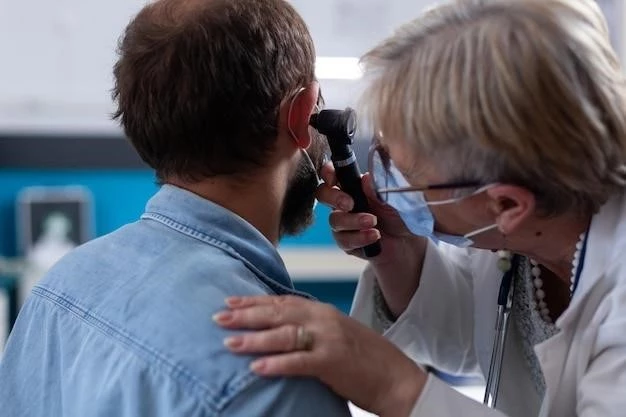Understanding Anterior Horn Disease is crucial for effective management․ Educate yourself about the symptoms, causes, diagnosis, treatment, research advances, and support available․
Overview of Anterior Horn Disease
Anterior Horn Disease affects the nerve cells in the spinal cord’s anterior horn, leading to muscle weakness, impaired movement, and potential paralysis․ It is essential to understand the impact it can have on the body’s motor function and the importance of timely diagnosis and treatment․ Educating yourself about the disease can help you make informed decisions regarding your healthcare and treatment options․ Seeking support from healthcare professionals and engaging in ongoing research can also provide valuable insights and resources to manage the condition effectively․ Stay informed, stay proactive, and prioritize your well-being when dealing with Anterior Horn Disease․

Symptoms of Anterior Horn Disease
Recognizing the symptoms of Anterior Horn Disease is crucial․ Look out for muscle weakness, impaired movement, and potential paralysis․ Consult a healthcare professional for proper evaluation․
Common Symptoms
Common symptoms of Anterior Horn Disease include muscle weakness, decreased muscle tone, twitching, muscle atrophy, and in severe cases, paralysis․ Patients may also experience difficulty breathing, speaking, or swallowing․ It is essential to be vigilant and report any unusual symptoms to your healthcare provider promptly․ Early detection and intervention can help manage the condition effectively and improve quality of life․ Seek medical attention if you notice any changes in your muscle function or overall well-being․
Causes of Anterior Horn Disease
Understanding the causes is essential․ Anterior Horn Disease can be caused by genetic factors, viral infections, autoimmune disorders, or environmental exposures․ Consult a healthcare provider for personalized insights․
Potential Causes
Anterior Horn Disease may have various potential causes, including genetic mutations affecting motor neurons, viral infections like poliovirus, autoimmune conditions targeting nerve cells, or environmental factors․ Understanding these causes can help in determining appropriate treatment approaches and lifestyle adjustments․ It is essential to work closely with healthcare professionals to identify the specific cause in individual cases and develop a comprehensive management plan tailored to your needs․
Diagnosis and Treatment of Anterior Horn Disease
Early diagnosis is key․ Seek medical evaluation for accurate diagnosis and explore treatment options with healthcare professionals․ Tailored care is essential for improved outcomes․
Diagnostic Procedures
Diagnosing Anterior Horn Disease may involve physical exams, electromyography (EMG), nerve conduction studies, genetic testing, and imaging scans like MRI․ These procedures help healthcare providers assess nerve function, identify the underlying cause, and determine the best course of treatment․ It is crucial to collaborate closely with your medical team throughout the diagnostic process to ensure accurate and timely results, leading to effective management strategies․ Stay proactive and informed about the diagnostic procedures recommended by your healthcare professionals to address Anterior Horn Disease optimally․
Treatment Options
When it comes to Anterior Horn Disease treatment, options may include physical therapy, assistive devices, medications to manage symptoms, respiratory support, and surgical interventions in some cases․ Working closely with a multidisciplinary healthcare team is crucial to tailor a comprehensive treatment plan suited to your specific needs․ Emphasize open communication with your healthcare providers to discuss treatment goals, address any concerns, and make informed decisions about the most suitable interventions available to manage Anterior Horn Disease effectively․ Remember, personalized care is essential for optimal outcomes․
Research Advances in Anterior Horn Disease
Stay updated on the latest research․ Advances in understanding the disease can lead to innovative treatments․ Connect with healthcare professionals to explore new options․
Current Research
Current research on Anterior Horn Disease focuses on developing novel therapies, understanding the genetic basis of the condition, and improving diagnostic techniques․ Stay informed about clinical trials and studies to access cutting-edge treatments and contribute to the advancement of knowledge in this field․ Engaging with research initiatives can provide valuable insights into the latest breakthroughs, offering hope for enhanced management strategies and potentially improved outcomes for individuals affected by Anterior Horn Disease․ Collaborate with healthcare providers to stay informed about the ongoing research efforts shaping the future of Anterior Horn Disease care․
Supportive Care for Anterior Horn Disease Patients
Explore various supportive options․ Seek assistance from healthcare professionals, join support groups, and prioritize overall well-being in managing Anterior Horn Disease․
Types of Support
Support for Anterior Horn Disease patients comes in various forms, including emotional support from family and friends, assistance from caregivers, access to specialized healthcare providers, and participation in support groups․ Additionally, financial assistance, home modifications for accessibility, and educational resources can further enhance the quality of life․ Explore the different types of support available to address the physical, emotional, and practical aspects of living with Anterior Horn Disease․ Collaborate with your healthcare team to create a comprehensive support network tailored to your individual needs and preferences․
Anterior Horn Disease in Children
Understanding how Anterior Horn Disease affects children is crucial․ Consult pediatric specialists for tailored care and support for young patients․
Pediatric Considerations
Anterior Horn Disease in children requires specialized care․ Pediatric considerations include early intervention, developmental support, multidisciplinary care teams, and age-appropriate therapies․ Consult with pediatric neurologists and other healthcare providers experienced in managing pediatric cases to ensure comprehensive and tailored care for young patients․ Stay engaged in your child’s care plan, advocate for their needs, and seek support from healthcare professionals and support networks specializing in pediatric Anterior Horn Disease․ Prioritize the unique considerations and challenges that children with this condition may face to promote their well-being and development․
Lifestyle Management with Anterior Horn Disease
Adopting a healthy lifestyle is key․ Stay active, eat well, manage stress, and follow treatment plans for optimal well-being while living with Anterior Horn Disease․
Healthy Living Strategies
Implement healthy habits to support your well-being․ Focus on maintaining a balanced diet, engaging in appropriate physical activity, getting sufficient rest, managing stress, and connecting with a supportive community․ It is essential to adhere to treatment plans, attend medical appointments regularly, and communicate openly with your healthcare team․ By incorporating healthy living strategies into your daily routine, you can enhance your overall quality of life and effectively manage Anterior Horn Disease․ Remember, a proactive approach to health can have a positive impact on your condition and overall wellness․
